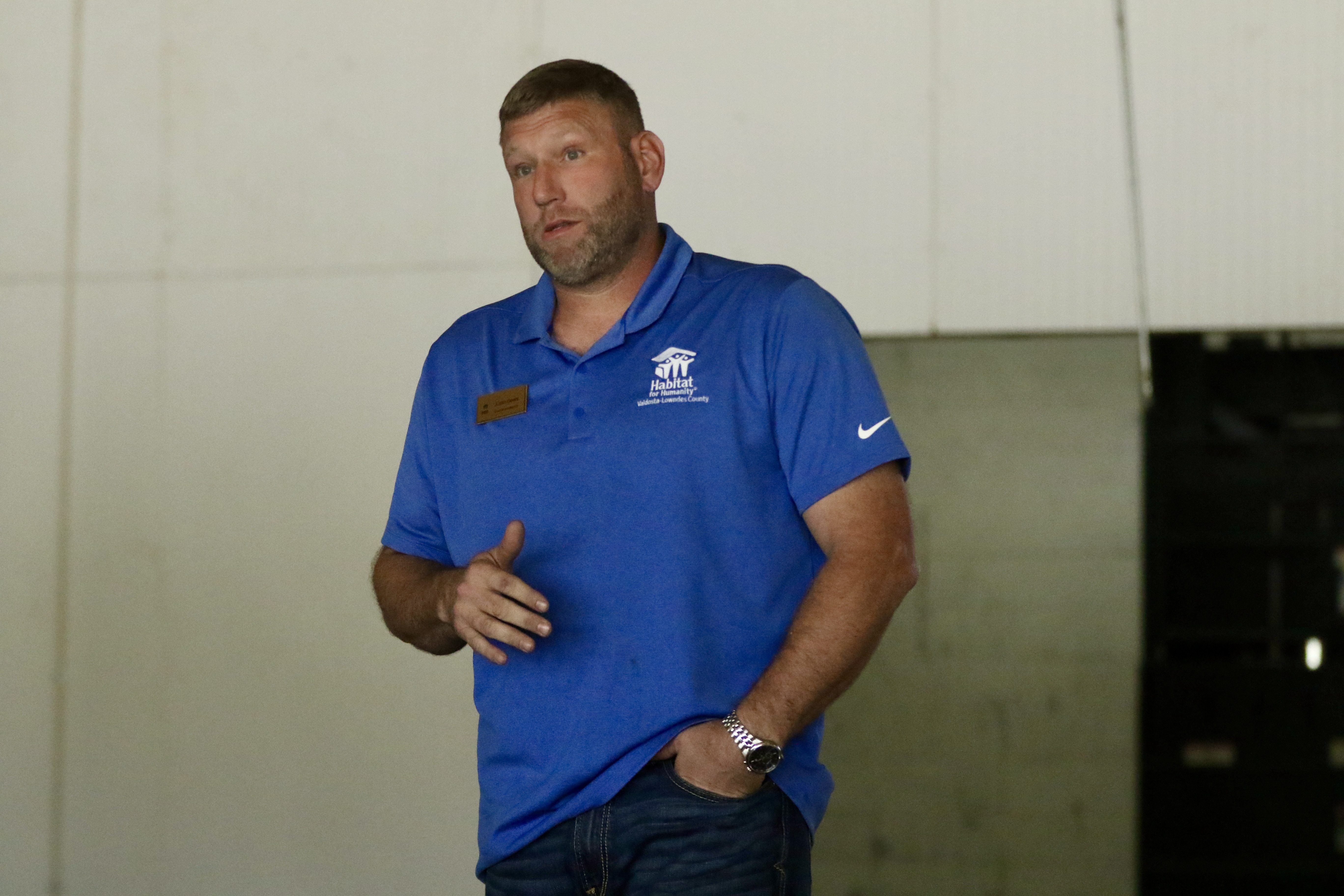Commission wraps up annual retreat
Published 12:00 pm Sunday, April 1, 2012

- gaval.jpg
It was a much briefer planning session Saturday for Lowndes County Commissioners, but it was arguably just as productive as they reviewed each department, identifying unique issues for each and developing plans for their resolution. After a home-cooked meal from Chairman Ashley Paulk’s wife Ginger, which included cured ham from the recent Ham & Egg Show, they went to work at about 8 a.m. and went into executive session a few hours later.
County manager Joe Pritchard said the Utilities Department is “in good shape financially,” although there have been some organizational and software problems with setting up credit card payments for customers. Currently, citizens who use county water are able to pay with their credit cards via phone and in-person, but are unable to make online payments. Electronic payments were supposed to be set up earlier this year, but software difficulties have been encountered.
“We can’t really get there from here without significant steps in technology,” Pritchard said. “They (IT) did a very good job in trying to pull that off, but it was not as successful and timely as I wanted. I’ll take full responsibility; there were some delays that were probably unnecessary.”
Finance Director Stephanie Black said a small group of employees had signed up to serve as a test group to help staff identify any additional problems with the system before it is open to the public.
Currently, utilities employs 16 full-time workers and provides 5,500 customers with residential, commercial and industrial water service. The cost of one mile of construction for water takes 23 years for a return on the initial investment; sewer takes 21.3 years. Utility Master Plan Projects total $34 million. They also discussed the possibility of providing water to
Moody and said that talks were “no longer on the front burner,” but both sides were still open to the possibility.
For the engineering department, they discussed proposed road projects by district, with almost $7 million for District 1; about $8 million for District 2 and $12.2 million for District 3. There are currently 486 miles of paved roads; 322 miles of dirt roads; 103 bridges/culverts and 70 railroad crossing in the county. They talked about Transportation SPLOST briefly and the sometimes difficult realities of working with the railroads companies. Pritchard said the list of proposed T-SPLOST projects benefited the City of Valdosta and the region directly, not just Lowndes County.
Commissioners then briefly talked about planning and zoning with emphasis on how staff constantly tries to strike a balance between individual property owners’ rights and neighbor rights.
“I get the sense that Planning and Zoning are doing whatever they can to make every case work rather than just saying no,” said District 2 Commissioner Richard Raines.
Public Works focused primarily on the mosquito control program which relies on public education to adequately cover the 504 square miles in Lowndes County and the aging fleet of dump trucks. Again, Commissioners attempted to find answers to a tight budget and equipment needs. A comprehensive work order list of 2011 cost summaries concluded that the cost to maintain roads was approximately $3.2 million.
Staff is also looking into the status of the recent piece of Georgia legislation titled,the “Right to Grow Act,” which would prohibit any county or city from passing an ordinance to outlaw the private ownership of bees, rabbits, food crops or chickens. County Clerk Paige Dukes later explained this was of interest because of the various pest control problems associated with the upkeep of livestock and the various problems this could cause in a tightly configured residential area.
Changes to the Animal Shelter’s Standard Operating Procedures have been implemented and a camera system has been installed to monitor activity.
“I think the criticism or attention that was received was beneficial in the sense that we’ve evaluated some of our processes and procedures,” said Pritchard. “(Current Director Linda Patelski) has more knowledge about animals than anybody I know. That has been extremely helpful. What she may lack for in managing people, which is an area we constantly work on, she makes up for it in her passion and knowledge for animals.”
Commissioners are looking into purchasing a new phone system for the 911 Center and said that they might have to expand the facility at some point in the future, but the need is not there presently.
Lowndes County Fire & Rescue will need reserve vehicles for an improvement of the Insurance Services Office rating. District 3 Commissioner Crawford Powell said that from his understanding, code enforcement has been more reactionary rather than pro-active and he would like to see this change slightly. He has seen many de-facto junkyards and used tire compilations which have not been addressed.
Pritchard also discussed the importance of the Information Technology Department and justified the lack of personal computer and laptop upgrades in recent years with an emphasis instead on technology infrastructure to handle future demands.
Afterwards, Commissioners discussed issues they had personally recognized such as Powell’s concern with employee morale after three years without wage increases. He asked if they had considered an “employee of the month” program, to which Pritchard said it had proven to be counter-productive because it had lost significance over time.
“Morale is a huge concern to me and has been over three years,” said Pritchard. “Anytime you have a reduction in force, elimination of salary increases and elimination of bonuses and then you ask everybody to ratchet up their performance – that’s a tough assignment.”
Dukes later explained how a couple of years after she arrived to work for the County in 1996, there was a year without raises.
“Morale was at an all-time low; I can’t tell you how bad it was,” said Dukes. “Now our employees have gone through almost three years without cost of living increases and morale is not anywhere as half as bad as it was then. When you have good department heads, commissioners and managers, those morale issues take care of themselves. We still have complaints and we can always do things better… but most people are just so thankful to have a job.”
Near the end of the meeting, Raines proposed introducing a “Junior County Commissioner” program at the local high schools to increase awareness of what a Commissioner actually does. Fellow commissioners were also interested, with District 1 Commissioner Joyce Evans stating that the Association of County Commissioners of Georgia already has a template available for an idea on how to initiate such a program.
Commissioner goals for 2012:
• update the solid waste ordinance, animal welfare ordinance and create an alarm ordinance by the beginning of the fiscal year.
• provide for a measurable increase in public education to include youth programs, radio programming and quarterly lunch and learn sessions.
• begin the process of SPLOST & LOST negotiations.
• develop a plan for the maintenance, restoration and use of the historical Lowndes County Courthouse.
• develop a process by which code enforcement actively identifies or “patrols” violations in an effort to minimize dump sites. Currently code enforcement is citizen complaint driven.
• update the solid waste management plan.
For more on this story and other local news, subscribe to The Valdosta Daily Times e-Edition, or our print edition.





